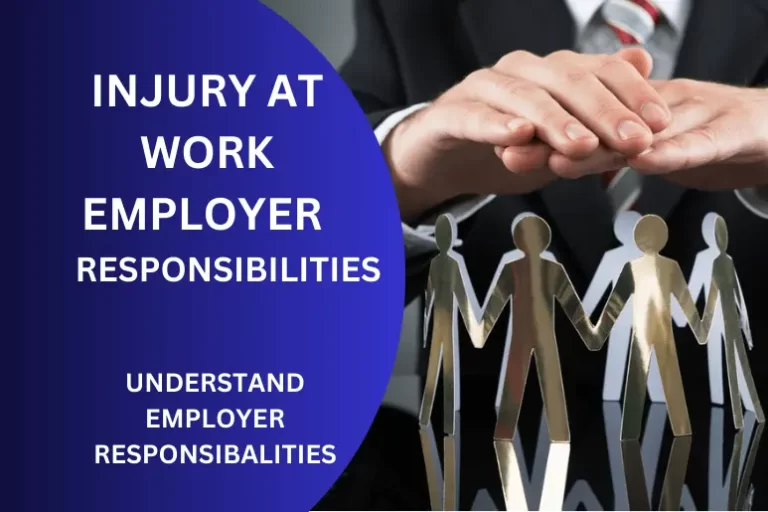Injured at work: what are my rights? | Understand Your Rights
When faced with a workplace injury, the immediate question that arises is, “Injured at work: what are my rights?” This pressing concern underscores the need for clarity around workers’ compensation. This system, designed to provide benefits to employees who suffer job-related injuries or illnesses, can seem complex. This article offers an in-depth look into the rights of workers, repeatedly addressing the pivotal question: “Injured at work: what are my rights?”

1. The Right to File a Claim
At the heart of “Injured at work: what are my rights?” is the right to file a workers’ compensation claim. This claim serves as a formal request for benefits. It’s essential to file this claim promptly, adhering to any deadlines set by your jurisdiction. Documentation, including medical records and incident reports, can strengthen your claim. When injured, understanding the process of filing and what documentation is required can significantly impact the benefits you receive.
2. The Right to Medical Care
Another crucial aspect of “Injured at work: what are my rights?” revolves around medical care. Under workers’ compensation, injured employees have the right to receive medical treatment. This includes emergency care, follow-up appointments, physical therapy, and any other necessary treatments. Depending on your jurisdiction, your employer or their insurance provider may have a say in which medical providers you see. Always ensure you report the injury immediately and adhere to any recommended medical procedures.
3. The Right to Legal Representation
Navigating the intricacies of workers’ compensation can be daunting. Fortunately, when asking, “Injured at work: what are my rights?”, legal representation emerges as a significant right. Hiring an attorney experienced in workers’ compensation can provide invaluable guidance, ensuring you navigate the process effectively and receive the benefits you deserve. Most attorneys in this field work on a contingency fee basis, meaning they’re paid a percentage of your benefits or settlement.
You can also read slides from SlideShare, and you can download these slides with slideshare downloader online.
4. Protection from Retaliation
Retaliation is a significant concern. The law ensures that employers cannot retaliate against employees for filing a workers’ compensation claim. This means employers cannot fire, demote, harass, or discriminate against you because of your claim. If you suspect retaliation, it’s crucial to document every incident and seek legal advice. Retaliation can lead to additional claims and penalties against the employer.
5. The Right to Disability Benefits
If your injury results in disability comes into play. Workers’ compensation provides disability benefits, categorized based on the severity and duration of the disability.
Understanding these categories and their implications can help ensure you receive the appropriate benefits.
6. The Right to Return to Work
Recovery is the ultimate goal after a workplace injury. Addressing “Injured at work: what are my rights?” once again, you have the right to return to your job post-recovery. If you cannot resume your previous role due to the nature of your injury, workers’ compensation may offer vocational rehabilitation. This can include training, education, and other resources to help you return to the workforce in a new capacity.
7. The Right to Know Your Rights
Employers have a responsibility to inform employees of their rights. “Injured at work: what are my rights?” should be a question with readily available answers, typically displayed in common areas. If you’re unsure about your rights or the process, consult your HR department or seek external resources.
8. The Right to a Second Opinion
Medical assessments are crucial. If you’re thinking, “Injured at work: what are my rights regarding medical opinions?”, know that you have the right to seek a second opinion. This ensures you receive comprehensive care and that your injury is accurately documented.
9. The Right to Appeal
Not all workers’ compensation claims are approved initially. In addressing “Injured at work: what are my rights?” when facing a denial, you have the right to appeal. This process can be intricate, requiring additional documentation and potentially even hearings. Familiarizing yourself with the appeal process in your jurisdiction, and considering legal counsel, can be beneficial.
FAQs
Conclusion
“Injured at work: what are my rights?” is a question every worker should know the answer to. These rights protect and support injured workers, ensuring fair treatment and necessary support. Always advocate for yourself, seek guidance when needed, and prioritize your well-being after a workplace injury.





